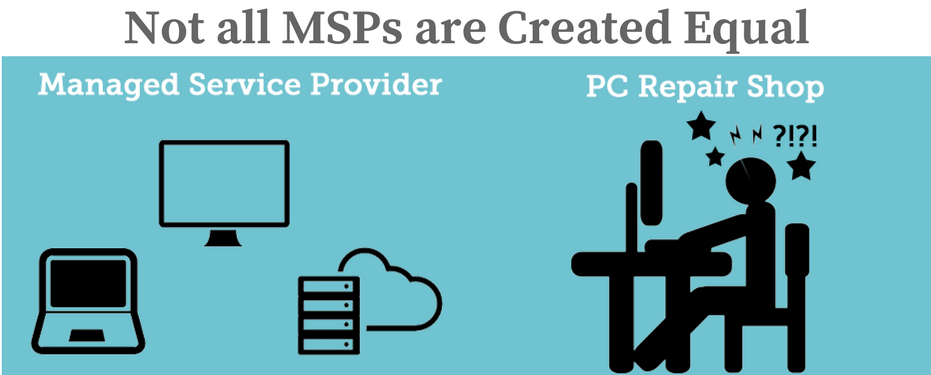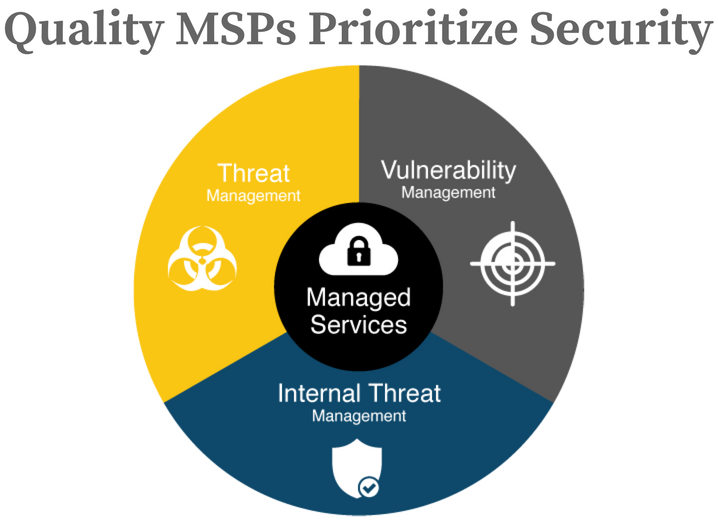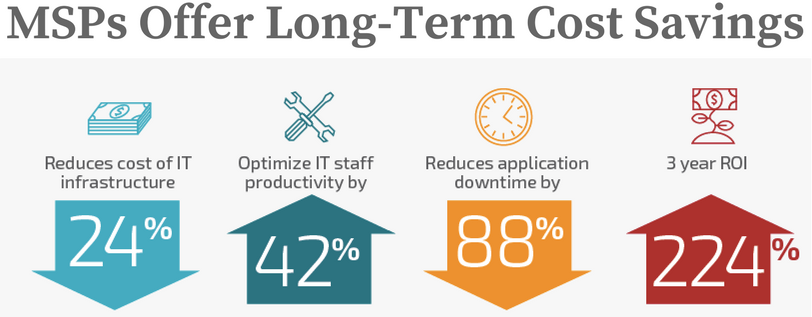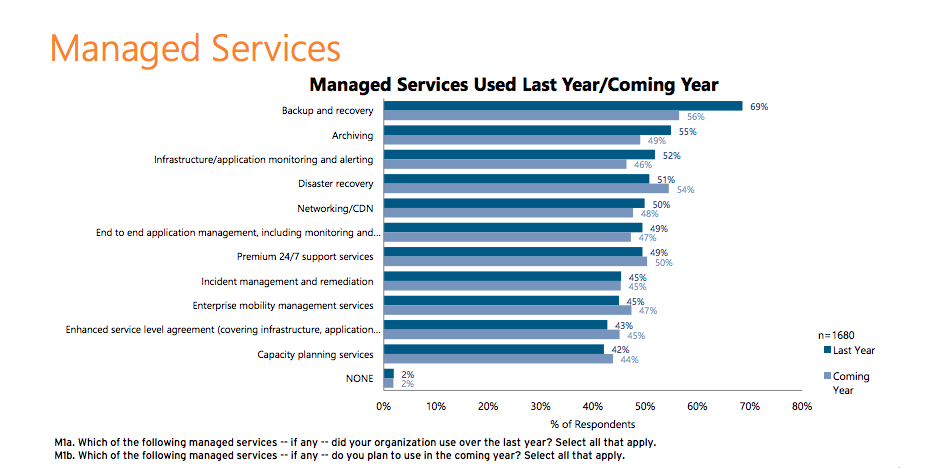--- When it comes to Managed Service Providers (MSPs), IT professionals either love them or hate them. Whether you've had a good experience or a bad experience, it's important to understand that all MSPs are not created equal.
MSPs are third-party technology experts hired to monitor and maintain different aspects of a company’s IT systems. The concept is only a decade old. Like most young industries, there are exceptional providers and some not-so-exceptional. As the industry matures, the higher-quality MSPs are separating themselves to provide a compelling IT support option.
Despite an expected staggering market increase from $152.45B to $257.84B in the next five years, many IT professionals who have been burned by a poor-quality MSP still find it hard to change their perception. While everyone is entitled to their opinion, there is now overwhelming support for the efficiency and effectiveness of higher-quality MSPs.
To help you separate fact from fiction, we’ve put together seven common misconceptions about MSPs that we found to be, well — myths.
Myth 1: Operational Quality Goes Down
Outside consultants are not going to care more about the quality of your technology and data than your internal team. If you outsource the responsibility of running your company's critical operational systems, performance will suffer. You can't afford a slow response to downtime.
Myth Busted!
The technology landscape has evolved, from a centralized system managed by IT to a complex web of specialized technologies and networks outside the expertise of IT.
The right MSP offers a unique opportunity to tap into people that specialize in their specific fields. They are more likely to stay up to date with emerging tech trends than your IT team, who is overwhelmed trying to maintain your entire system. When you hire specialists for certain aspects of your system, you will drive efficiencies in that area.
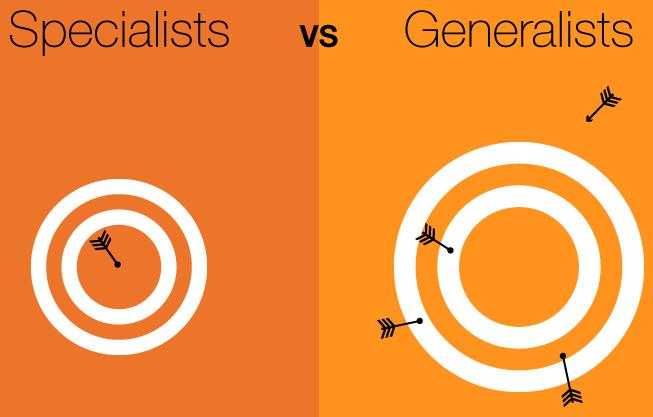
According to a 2017 Cisco study, their MSP offering increased client efficiency by 60%. In addition to providing experts within each specialized component of IT, MSPs are typically available 24/7, maintaining your systems with minimal downtime.
Myth 2: Company Data is Less Secure
Cyber attacks are inevitable and the average cost to fix the damages and recover data is a whopping $879,582. If your company is hacked, MSPs will lose nothing. Why would they go above and beyond to protect your data?
Myth Busted!
An MSP won't stay in business for very long if they don’t understand the importance of security and implement every possible measure to keep your systems and data safe. As it turns out, the top reasonscompanies hire MSPs is for their security expertise and ability to stay on top of trends to ensure security is always updated to deter new threats.
For example, a security MSP like Auth0 is not only an expert in identity access management, but they are constantly developing new technology features to modernize and stay ahead of the industry. As an MSP customer, you benefit from this innovation while your IT staff focuses on your business initiatives.
When your core business is to manage technology solutions for multiple companies, your top priority is to have the best and most comprehensive security systems to keep your client’s data safe.
Myth 3: MSPs are More Expensive
Hiring an outside company to cover tasks that your current staff already manages is a waste of money. In addition to high monthly fees, the operational cost savings that MSPs often promise are not guaranteed. It's hard to validate the costs.
Myth Busted!
Countless studies and surveys have shown that hiring an MSP is not only more cost-effective, but your company will likely enjoy considerable operational savings by 50% or more.
Internal IT is one of the highest and most unpredictable expenditures. Most of the established budget (up to 65%) is dedicated to maintenance. According to a 2017 Cisco study, MSPs reduce these recurring, in-house costs by 40% and frees your IT team up to be more proactive.
Myth 4: IT Loses Control of Operations
The renewed importance of data and technology has elevated IT managers to rock star status in most companies. When some of their responsibility is outsourced to an MSP, there is a loss of control that threatens managers causing friction.
Myth Busted!
Losing control of your operations is not a result of hiring an MSP. It's a sign of a lack of effectively managing your outsourcing. The control that you give up is dependent on what you allow your vendors to take.
An effective MSP relationship requires setting clear expectations, a scope of services and a strong service agreement (SLA). By understanding the level of control you’d like to maintain before you hire an MSP, you will be able to define your requirements beforehand and select the right partner that won't challenge your control.
Myth 5: Transitioning Creates Internal Confusion
When new technologies are introduced to a company, there is an adoption period where employees learn how to use the new tools. Hiring an MSP is going to cause a period of confusion and stall productivity as everyone gets up to speed.
Myth Busted!
The majority of MSPs are used for highly technical aspects that have a very little impact on your internal team's day-to-day activities. In fact, most companies (72%) use MSPs for back up and disaster recovery followed by antivirus/spam filtering (68%) and storage management (64%).
Most of your employees will never interact with these types of services. MSPs are designed to handle the tedious work of maintaining the backend technology, which frees up IT from focusing on recurring technical tasks. Overall, both IT and general employees should feel less of a burden working with a managed service provider.
Myth 6: MSPs Can't Help You Differentiate
MSPs grow their businesses by gaining more new customers. If MSPs provide the same services to all these companies, your technology and data will lack differentiation and lose its competitive advantage.
Myth Busted!
The advantage of an MSP is not to deliver a custom technology solution that will give you an advantage over your competition. The benefit of outsourcing the technical, non-strategic aspects of IT to a managed service is to free up valuable time for you to focus on leveraging your data for growth.
An MSP can help lower costs and take over the time-consuming tasks that keep the business running smoothly. It's up to you and your team to outsmart, outwork and outlast your competition.
When 65% of your current IT time is spent 'keeping the lights on', you are wasting an opportunity to outsource that work, so that the technology professionals within your organization can use their skills to promote growth.
Myth 7: Your IT Team Will Be Fired
When you outsource work, people assume you are downsizing to cut costs. Your IT staff will fear being fired if you present the idea of hiring an MSP.
Myth Busted!
While it is impossible to predict the fate of your IT team, MSPs are not the reason IT people are let go. In a recent survey by CompTIA, only 6% of companies that hired an MSP eliminated their in-house IT team. The vast majority of companies see MSPs as a way to help IT reprioritize its role.
The smartest approach to hiring an MSP is to identify the complementary needs that your IT staff does not have the time or expertise to maintain. This way, the MSP becomes a support system for your internal staff, not a threat.
An Effective MSP will Empower Your Internal IT
Every business, big and small, must deal with the reality that technology is the foundational layer of its operation. Every business function—from support systems to revenue-generating initiatives are all tied to technology.
Managed services is a great option if you are looking to free up internal IT staff so they can focus on other initiatives that support company growth. By outsourcing the more technical tasks like identity access management or infrastructure monitoring to specialized experts, your IT team will have the opportunity to create more strategic value with your company's technology.



